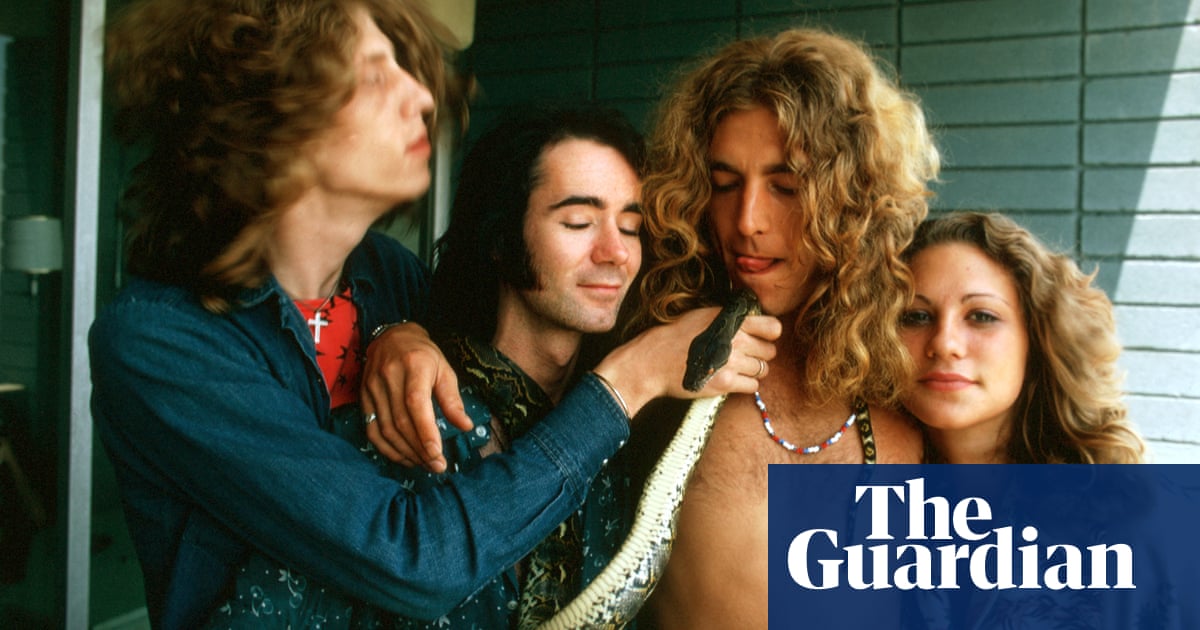
Just as we could most do with a laugh in the painful run-up to the election, last week the BBC’s director of comedy commissioning, Jon Petrie, told a festival audience that the mainstream UK comedy scene needs “a couple of Berocca and a black americano”. At the BBC Comedy festival in Glasgow, he appealed for programme-makers to “save” sitcoms. Mournful reports of “the death of the sitcom” followed. What are we Britons supposed to laugh at now? Surely not content by … the Americans? Or – even worse – “comedy drama”?
But how on earth can sitcom be dead when we live in an age of constant new content, endless streaming and easily accessible reruns of old and new material? And what does it matter what we call comedy, as long as we are getting a laugh? My kids – in their teens and early 20s – watch Derry Girls, Ghosts, Outnumbered and Friday Night Dinner on a loop, all nominally sitcoms and hardly ancient.
What has actually been consigned to the history bin is the definition of “watercooler British sitcom” that everyone watches and draws their references from. This has been replaced by phenomena with dark comedic undertones, viral reach and “a beginning and an end”, such as Baby Reindeer and Saltburn. Petrie is right about one thing: it’s harder for sitcoms to achieve the social media buzz of must-watch comedy drama. The whole point of a sitcom is that it trades suspense for familiarity: the comedy comes from the fact that the characters are trapped inside behaviour they cannot change. If they learn how to change, the sitcom is over.
If some people think the British sitcom is dead, though, perhaps it’s because they miss the heyday of comedy based in cushioned domestic settings. But that is not sitcom. We have forgotten the definition of the word. Sitcom means situational comedy – comedy that takes place within the confines of a prescribed situation. It has nothing to do with sitting or being set mostly in a sitting room. But you can see how that unconscious error might have come about, seeing as dozens of earlier fondly remembered incarnations – from US hits such as Friends, Frasier and Seinfeld to British favourites The Good Life, Absolutely Fabulous and Men Behaving Badly – involved a lot of sitting around. But the sitting-room-avoidant Ted Lasso is a situational comedy (US-made and set in the UK). The same goes for Fleabag, Catastrophe, Motherland and the upcoming finale of Gavin and Stacey. We are still making great situational comedies.
The biggest shift of the past 15 years is the collapse of the idea of “British” sitcom that reflects British identity. I was raised in the era where the situation was always an English (not actually British) sitting room: Ever Decreasing Circles, Sorry!, Just Good Friends, Only Fools and Horses, Bread. The characters were always from the same class, race and background (or were the butt of the joke if they were not). The comedy relied on assumed shared cultural references and an imagined agreement about what it was acceptable to laugh at.
It would be exceptionally weird if that same kind of comedy worked 40 years later, when the world has moved on. Old sitcoms get viewing figures now because they represent nostalgia and guilty comfort: they came from a less questioning time, when it was acceptable to pigeonhole people and set them up as “types”. Sitcom relies on the repetition of fixed roles: the nerd, the diva, the pedant, the one who always has to be right, the one who never listens, the one who always flirts … Younger audiences are wise to these tropes and see them as inauthentic and tired. They will watch them as wallpaper from the olden days. But they don’t want new wallpaper that looks the same.
In some ways, comedy arising from situation is more alive than ever. I’m hosting an event called The Limits of Comedy at Hay festival later this week with the Mumbai-based standup Aditi Mittal, the actor Julian Rhind-Tutt and the comedy writer Joel Morris. Mittal hosts what you might call a permanent one-woman situational comedy – her life – on Instagram. Rhind-Tutt, who first appeared in Green Wing in 2004, is now starring in the cult hit podcast Green Wing: Resuscitated, hailed as a glorious revival of a classic beloved sitcom. Bafta-winner Morris was part of the development team for Black Mirror, one of our best TV exports ever: hardly sitcom but strong on situation and on the darkest comedy in every single episode. Surely the whole point of comedy is that it is resistant to labels, and there are no limits to it as long as you pay people properly to make it.
People who say sitcom is dead and that nothing is funny any more are simply expressing the fact that they miss the days of four channels, less choice, lowest common denominator and commissioners who targeted a certain, easily defined demographic. There is actually far more funny around now than there was then. You just have to get out of the metaphorical sitting room to find it.
Viv Groskop is a comedian and author of Happy High Status: How to Be Effortlessly Confident












